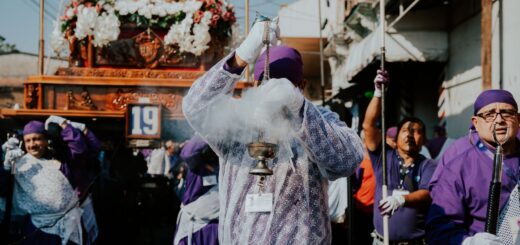The Journey of Transformation: Understanding Ayahuasca Retreats and Ceremonies
Anecdotal accounts and exploratory studies alike suggest growing interest in alternative healing methods, with one name standing out in particular – Ayahuasca. This powerful plant medicine, deeply rooted in shamanism and rainforest wisdom, has been imbibed in healing ceremonies across centuries. The allure of Ayahuasca retreats lies in their potential to deliver profound spiritual guidance and personal transformations.
Ayahuasca is a sacred brew, dense with rich traditions from the heart of the Amazon rainforest. It is created by combining two plant species – the Ayahuasca vine (Banisteriopsis caapi) and the leaf of the Chacruna plant (Psychotria Viridis). The resulting brew is central to sacred rituals in certain indigenous cultures, with shamans leading ceremonies to enable physical, emotional, and spiritual healing.
Ayahuasca retreats offer carefully curated experiences, rooted in traditional practices but designed to meet the psychological, spiritual and emotional needs of modern individuals. These retreats usually take place in serene, natural environments, supplementing the healing power of Ayahuasca with the tranquility of the surroundings. During the retreat, participants are typically guided through several Ayahuasca ceremonies (often occurring on consecutive nights), complemented by other supportive practices like meditation, yoga, individual counseling and integration sessions. The aim is to create a conducive space for personal growth and introspection.
The Ayahuasca experience is known for its profound potential in exploring the deeper parts of one’s consciousness. The term “purging” often comes up when discussing Ayahuasca ceremonies and it refers to the intense physical and emotional cleansing that users sometimes experience. This can be a challenging part of the retreat, as the plant medicine works to bring repressed traumas or emotions to conscious awareness, for the ultimate goal of healing.
Integration is a vital aspect of the Ayahuasca journey, as it helps participants make sense of their experiences and incorporate insights into their daily lives. An explanation of the experiences, emotions, and visions that arise during a ceremony is often provided by the shaman or a trained facilitator during integration sessions. This can take several forms, from one-on-one discussions to group talks, and even continued online aftercare support to ensure the transition back to routine life is as smooth and supportive as possible.
The leading role in these retreats and ceremonies is often held by a shaman – a spiritual guide and healer, typically embodying the wisdom of indigenous tribes and deeply versed in plant medicine. The rituals performed by these trained practitioners are passed down through generations, with each maintaining the mystic essence of their ancestral customs. They orchestrate the ceremony, prepare the brew, guide the participants through the process, and offer support during integration.
Safety concerns are a significant aspect to consider when it comes to Ayahuasca. Given the intense psychoactive effects of the brew, it’s necessary for participants to know potential risks and side effects, and to consider contraindications with certain medical conditions and medications. Hence, Ayahuasca retreats should prioritize safety, providing medical screening prior to participation and experienced, trained facilitators to guide users through the process.
The globalized interest in Ayahuasca has not been free of controversy. Critics voice concerns about the potential for exploitation, both of the sacred indigenous rituals and of the participants looking for healing. For many indigenous communities, Ayahuasca is not just a plant; it’s a spiritual entity deserving respect. Accordingly, maintaining the sanctity of these traditional practices while accommodating the evolving landscape of spiritual exploration is challenging but essential.
Ayahuasca retreats offer a unique opportunity to explore one’s innermost self in a guided, supportive environment. The combination of plant medicine, traditional wisdom, and spiritual guidance can provide transformative journeys for those prepared to face their deepest shadows. However, eager participants should remember that Ayahuasca is not a quick fix, but a gateway into a deeply personal healing process that demands respect, openness and commitment.
For more information on Ayahuasca and retreats, explore resources like ICEERS and MAPS.
Sources:
1. “Therapeutic potential of Ayahuasca in grief: a prospective, observational study”
2. “Rapid antidepressant effects of the psychedelic Ayahuasca in treatment-resistant depression: a randomized placebo-controlled trial”
3. “The Therapeutic Potentials of Ayahuasca: Possible Effects against Various Diseases of Civilization”
4. “Predicting the abuse liability of entheogen use in an online Psychedelic community”


